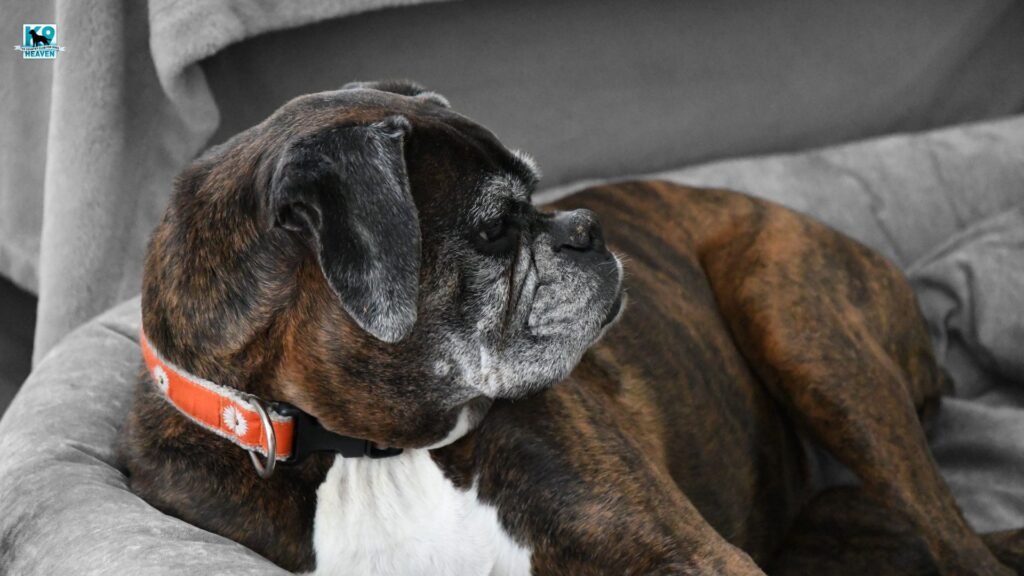Being a dog parent is a journey filled with boundless joy, unwavering loyalty, and profound companionship. From the first wagging tail, our doggos become an essential part of our lives. While having a dog is a truly rewarding experience, it also comes with a lot of responsibility.
Just like humans, dogs undergo many changes throughout their lifetime. As dog parents, we must adapt our care plan to meet their needs. As your dog reaches their senior years, they may require additional support. From adapting their diet to modifying exercise, there are lots of ways you can help.
From the stages of aging to common signs and solutions, our team has pulled together everything you need to know about caring for older dogs.
The stages of dog aging
Puppyhood
Typically lasting around 6-7 months, puppyhood is a vital part of your dog’s development. Try to establish a good care routine during this stage and start to lay the foundations for training. If you’ve got a puppy, you’ll also want to make sure they are up to date on all vaccinations and basic health checks.
Juvenile
The juvenile stage lasts roughly from 6 months to 2 years. During this time, your doggo will undergo significant growth both physically and mentally. Training and exercise become particularly important at this stage, to ensure good health and behaviour.
Adult
Dogs reach their full size and maturity from the age of two. It’s at this point when you’ll notice a shift in personality and temperament. That high puppy energy will calm down and they may display a more settled behavior. Just like in the early years, adult dogs require regular exercise, balanced nutrition, and good veterinary care.
Middle age
Dogs are classed as “middle-aged” when they reach 50% of their life expectancy. This figure will entirely depend on their breed so be sure to do some further research. At this moment in their life, your dog may start experiencing physical changes like joint discomfort. To stay on top of their changing needs, take your pal for regular check-ups.
Senior
Senior years refer to the later years of a dog’s life. This can be a tricky time for dog parents as it is when your dog is most likely to experience health issues. Common conditions at this time include joint problems, problems with vision, decreased mobility, sensory decline, and changes in behavior and cognition. Read on to find out how you can help your doggo during this period.

What are the signs of aging in dogs?
Recognising the signs of aging enables you to provide tailored care for your dog as they get older. Some of the most obvious signs of aging include reduced mobility and general discomfort. For example, dogs in their senior years are more likely to experience stiffness or have difficulty climbing stairs.
As your dog ages, you may also notice other changes like decreased activity levels and increased anxiety. Mental decline is also common in senior dogs, affecting energy and behavior. Providing mental stimulation through games and training can help support their cognitive health. Your dog may also become sleepier during the day and experience significant weight changes.
While it’s always difficult to watch your dog go through these changes, by monitoring them and adapting to their environment, you can significantly reduce discomfort.
How to support older dogs
Modify their exercise
At this stage in your life, your doggo will inevitably notice a decline in energy levels. While exercise is still extremely important, it will need to be modified. Adjust your dog’s exercise routine to accommodate their changing needs and limitations by opting for low-impact activities like gentle walks and swimming.
Monitor behavior
As your dog ages, you might start to notice a few changes. Be attentive and look out for signs of discomfort. By keeping a careful eye on your doggo, you’ll be able to give them the right care as soon as they need it.
Consider alternative therapies
While your dog may be taking some medication to soothe their ailments, there are natural therapies that can help too. Massages, warm towels, acupuncture, and sound therapy can all be used in addition to their usual treatment. Not only are they highly effective, but they’ll also keep your dog feeling relaxed.
Invest in pet insurance
As your dog ages, they will inevitably run into more health issues. Prepare for these expenses now by investing in pet insurance. With many packages tailored to the needs of senior dogs, pet insurance can significantly reduce financial stress.
Take them for regular checkups
To give your dog the best start in their senior years, be sure to take them to the vet for regular checkups. Frequent check-ups will ensure your dog remains in good health and help detect health issues early on.
Are older dogs prone to fleas?
While all dogs can get fleas, senior dogs are more susceptible to them due to their lowered immune system caused by old age. Be on the lookout for fleas in your dog’s fur and treat them as soon as they arise.
What should I feed my older dog?
If you’ve been providing your dog with a varied diet from the beginning then you’ve already done a great job! A high-quality diet will support health and longevity for years to come. For senior dogs, you’ll want to include more protein and less carbs. As dogs get older, they tend to lose muscle mass and experience a slower metabolism. When it comes to protein, real food like beef, nutrient-dense organ meats and salmon are all great choices.
Look out for high-quality dog food packed with all the nutrients they need. Anything that is loaded with whole grains, fruits, and gut-healthy vegetables, is a great choice. Omega-3, zinc, iron, vitamin E, niacin, selenium, vitamin A, biotin, vitamin B12, vitamin D3, folic acid, and calcium, are designed to support your dog’s energy levels, digestion and joints.
Can older dogs go to doggy daycare?
Absolutely! At K9 Heaven, we are trained to care for doggos of all ages and stages. When your pal comes for a trial day, we’ll work hard to understand their needs to ensure they have the best time.
On their first visit, they’ll be grouped into a pack with doggos of a similar size and temperament to ensure they have a positive experience. For senior dogs, we’ll set up age-appropriate activities and give them plenty of time to rest. If that’s not enough, you’re doggo will also receive nutritious home-cooked meals, onsite dog grooming, and 10 acres of farmland to explore.
If you’re looking for high-quality care, we’re here to help. Get in touch today for more information.





